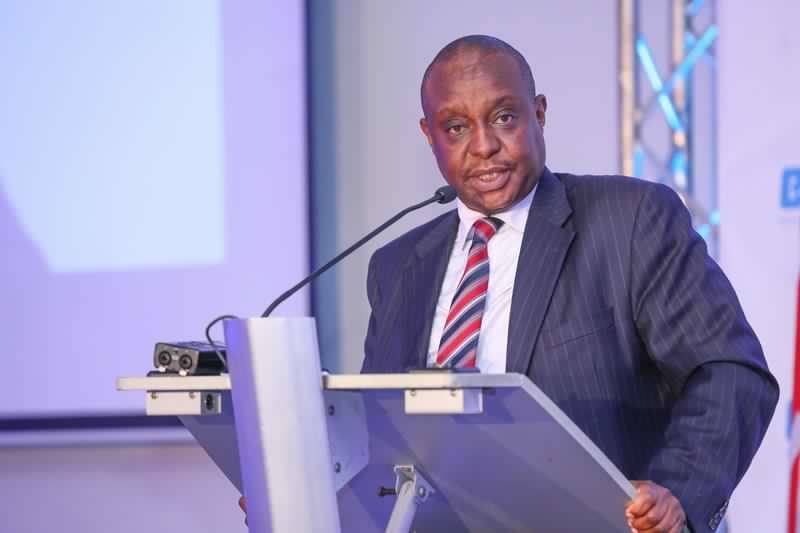
EADB CALLS ON STRENGTHENING OF LAWS FOR THE MINING INDUSTRY TO ENSURE EQUITABLE DISTRIBUTION OF RESOURCES
Nairobi meet seeks to ensure African resources contribute to a strong economic future.
Nairobi, August 19, 2016: Kenya’s Attorney General, Hon. Prof. Githu Muigai has asked public sector lawyers in East Africa to ensure that resource wealth brings East Africa long-term and sustainable economic development through preventing resource dependence and encouraging economic diversification. This will encourage job creation despite the sector’s capital-intensive nature, by minimizing environmental degradation and by allowing for the benefits to accrue even after depletion of resources.
In a speech read on his behalf by Deputy Solicitor General, Madam Christine Agimba at the closure of high level seminar for East African Judges in Nairobi, Prof. Muigai observed that governments in the general East African region are increasingly putting in place legal and regulatory mechanisms to support the investments in the extractives sector. This includes reviewing of outdated legislation and the enactment of new laws as well as other mechanisms to improve the investment climate and enhance the ease of doing business.
“In Kenya we have recently enacted new business laws legislation that improve the environment for doing business; which include the Companies Act, Insolvency Act, Business Registration Service Act, Insolvency Legislation (Consequential Amendments) Act. We are also focused on reviewing outdated legislation regulating the extractives sector and enacting legislation that is aligned to the Constitution of Kenya, 2010. The Mining Act, 2016 has been enacted to replace the 1940 Mining Act. The Energy Act has been reviewed through the Energy Bill, 2015, which is currently before Parliament, and we are also reviewing the Petroleum (Exploration and Production) Act.” He added.
“The rise of exploration activities has also seen a rise in litigation both before Kenyan courts and internationally in forums like ICSID (International Centre for Settlement of Investment Disputes) and these calls for a closer examination of how disputes are resolved. Most of the African countries are now trying to build their own capacities to handle complex commercial disputes with the setting up of regional Centres for commercial arbitration, with one being here in Nairobi, Rwanda, Mauritius, Egypt among others. These efforts, in my opinion must be applauded and encouraged,” said Prof. Mugai in his statement.
He noted that Kenya has progressed in formulating laws to ensure natural resources are properly managed.
EADB Director General, Vivienne Yeda, observed that the discovery and ongoing exploration of various minerals in the region has raised the expectation of host communities and governments that resource extraction will result into wealth creation, reduced budget deficit and improve the conditions of the local people.
“It is critical that host countries are able to derive tangible benefits from the exploitation of their natural resources. The benefits should accrue to the local communities in form of appropriate royalties, taxes, dividends, business opportunities, professional jobs and employment for skilled labour, said Ms. Yeda”
She added that there should be a clear benefit to the country, commensurate with the amount of resources derived for the country. In order to achieve this, taxes and other fiscal rates, environmental and social management in Africa should be comparable to those prevailing in advanced economies.
The training seminar was organised by EADB and facilitated by global law firm, DLA Piper. It was designed for judges from the East African region involved in arbitrating transactions and settlement of disputes in the extractive sectors. In a bid to support endeavours by East African governments to promote and advance extractive industries, EADB, in collaboration with DLA Piper have held a series of regional workshops for the legal profession.
Speaking at the closing ceremony of the seminar, Justice Henry Ridgely of DLA Piper stated: “We are very pleased to be collaborating again with EADB in capacity building in East Africa in the extractive sector. We are happy to assist the region in realising this objective.”
About EADB
The East African Development Bank (EADB) was established in 1967 under the treaty of the then East African Cooperation. Its mandate was to provide financial and related assistance to enterprises in the member States which, by their activities, were expected to make a positive contribution to socio-economic development in the region.
The Bank was re-established under a new Charter in 1980.
Under the Charter, the Bank’s role and mandate were reviewed and its operational scope expanded to include a broad range of financial services in the Member States with an overriding objective of strengthening socio-economic development and regional integration.
EADB is today owned by the four Member States of Kenya, Uganda, Tanzania and Rwanda as well as other development and commercial financial institutions. Being an organ of the EAC and its partnership with EAC institutions has accorded it a platform to play a catalyzing role in regional integration through provision of development finance.
About DLA Piper
DLA Piper is a global law firm located in more than 30 countries throughout the Americas, Asia Pacific, Europe, Africa and the Middle East.